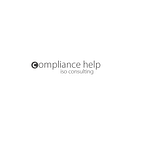Can You Have a Career as A Quality Assurance Consultant in Australia?
Quality assurance is crucial aspect of any business management program as it centres on customer satisfaction, brand loyalty, and stable revenue margins. If the performance of your service or product is not met, customers will find suitable alternative vendors. Along with reputation loss, a company may have to pay fees for violating the statutory conditions around maintaining quality assurance as well. Therefore, implementing a quality assurance/management protocol is a necessity.
With the ever-growing concern of implementing an effective QMS (quality management system) across different business sectors, there are hundreds of enthusiastic candidates who want to become quality assurance consultants. The question is whether there you can make it into a career or not. The following article will delve into that very question.
Factors contributing to the career potential for quality assurance consultants.
1. Applications in different industries
Technology and IT: The tech industry places a high value on quality assurance to ensure software reliability and performance.
Manufacturing: The manufacturing sector relies on QA consultants to maintain product standards and process efficiency.
Healthcare and Pharmaceuticals: Stringent quality and compliance requirements in healthcare create a steady demand for QA expertise.
Construction: The construction industry requires QA consultants to ensure compliance to all building codes and safety standards.
2. Organisational requirements
Process Improvement: Companies are increasingly focusing on process optimisation to enhance efficiency and reduce costs.
Customer Satisfaction: Ensuring high product and service quality is key to customer satisfaction and retention, driving the need for QA expertise.
Risk Management: QA consultants help companies effectively mitigate risks associated with non-compliance and quality failures.
3. For a seamless accreditation
Professional Credentials: Experts with certifications such as Certified Quality Auditor (CQA), Certified Quality Engineer (CQE), and ISO Lead Auditor have better career prospects. Companies prefer to rely on these professionals because they offer comprehensive solutions that are simple and hassle-free.
Continuous Improvement: Organisations seek consultants with expertise in continuous improvement methodologies like Six Sigma and Lean.
4. Growing concerns for quality management
Regulatory Requirements: Increasing regulatory requirements across industries such as healthcare, finance, manufacturing, and IT necessitate adherence to quality standards.
International Standards: The adoption of international standards like the ISO 9001 (Quality Management Systems), the ISO 13485 (Quality Management system for medical device production sector), and the ISO 17025 (Quality Management for calibration and laboratories) is becoming more widespread.
What are the opportunities?
● Working with established consulting firms that provide QA services to a variety of clients across different industries.
● Offering services as an independent consultant to businesses seeking specialized QA expertise for specific projects.
● Joining large firms as an internal QA consultant to oversee and improve their quality management systems.
● Working with organisations that provide training and certification in quality standards, helping others achieve and maintain compliance.
Conclusion
To become an effective quality assurance consultant, one must acquire professional certification, technical and soft skills. Professional certification must be acquired through a recognised certification body for system implementation and audit.
Author Bio — The author has worked as a quality assurance consultant for more than 30 years. He now writes on various research topics associated with ISO consulting services and the various standards.
